Filter by

Internet research ethics
This anthology addresses ethical challenges that arise within the field of Internet research. Among the issues discussed in the book are the following: When is voluntary informed consent from research subjects required in using the Internet as a data source? How may researchers secure the privacy of research subjects in a landscape where the traditional public/private distinction is blurred an…
- Edition
- -
- ISBN/ISSN
- 9788202489519
- Collation
- 175p.: ill.
- Series Title
- -
- Call Number
- 174.90014 ENJ i

Equitable research partnerships :a global code of conduct to counter ethics d…
This open access book offers insights into the development of the ground-breaking Global Code of Conduct for Research in Resource-Poor Settings (GCC) and the San Code of Research Ethics. Using a new, intuitive moral framework predicated on fairness, respect, care and honesty, both codes target ethics dumping – the export of unethical research practices from a high-income setting to a lower- o…
- Edition
- -
- ISBN/ISSN
- 9783030157456
- Collation
- xix, 122p : ill,
- Series Title
- -
- Call Number
- 174.9 SCH e
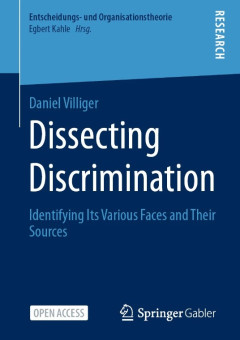
Dissecting Discrimination :Identifying Its Various Faces and Their Sources
This Open-Access-book examines the phenomenon of discrimination using a descriptive approach. Discrimination is omnipresent, whether it is people who discriminate against other people or, more recently, also machines that discriminate against people. The first part of the analysis employs decision theory on discrimination, leading to two fundamental subtypes: taste-based discrimination and stat…
- Edition
- -
- ISBN/ISSN
- 9783658345693
- Collation
- xi, 234 p.
- Series Title
- -
- Call Number
- 331.13 DIS D
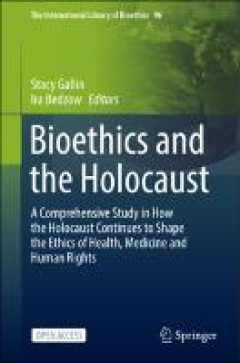
Bioethics And The Holocaust
This open access book offers a framework for understanding how the Holocaust has shaped and continues to shape medical ethics, health policy, and questions related to human rights around the world. The field of bioethics continues to face questions of social and medical controversy that have their roots in the lessons of the Holocaust, such as debates over beginning-of-life and medical genetics…
- Edition
- -
- ISBN/ISSN
- 9783031019876
- Collation
- -
- Series Title
- -
- Call Number
- Public health & preventive medicine
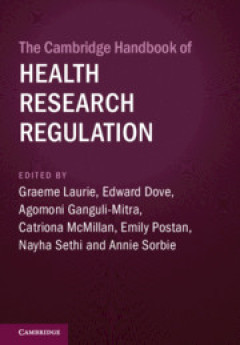
The Cambridge Handbook of Health Research Regulation
The first ever interdisciplinary handbook in the field, this vital resource offers wide-ranging analysis of health research regulation. The chapters confront gaps between documented law and research in practice, and draw on legal, ethical and social theories about what counts as robust research regulation to make recommendations for future directions. The Handbook provides an account and analys…
- Edition
- -
- ISBN/ISSN
- 9781108620024
- Collation
- xix, 444 p ; ill
- Series Title
- -
- Call Number
- 344.04196 CAM G
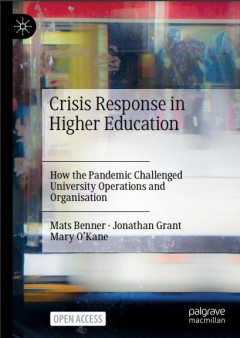
Crisis response in higher education :how the pandemic challenged university o…
This open access book explores the impact of Covid-19 on universities, and how students, staff, faculty and academic leaders have adapted to and dealt with the impact of the pandemic. Drawing on experiences from Britain, Australia and Sweden, it showcases how Covid has challenged routines and procedures in universities, and thrown them into a disarray of ever-changing events and short-term adap…
- Edition
- -
- ISBN/ISSN
- 9783030978372
- Collation
- xi; 183p; ill.
- Series Title
- -
- Call Number
- 378.101 CRI M
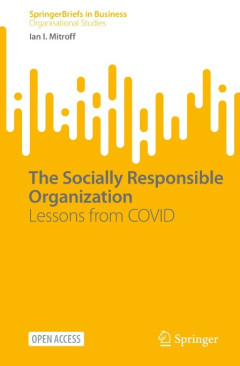
The Socially Responsible Organization :Lessons from COVID
This book explores the nature of the socially responsible organization, specifically the role of crisis management in creating a socially responsible organization. It applies the Myers-Briggs Personality Typology (MBPTI) and the Thomas-Kilmann Conflict Framework to issues such as responses to the COVID-19 pandemic, regulation of tech companies, and infrastructure. Dr. Mitroff lists the major ar…
- Edition
- -
- ISBN/ISSN
- 9783030998080
- Collation
- xi, 51 p.
- Series Title
- -
- Call Number
- 658.408 QUE I
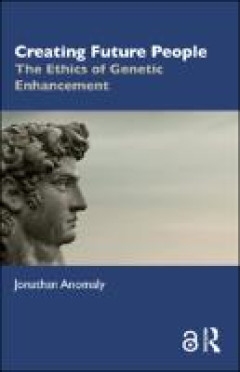
Creating future people :the ethics of genetic enhancement
Creating Future People offers readers a fast-paced primer on how new genetic technologies will enable parents to influence the traits of their children, including their intelligence, moral capacities, physical appearance, and immune system. It deftly explains the science of gene editing and embryo selection, and raises the central moral questions with colorful language and a brisk style. Jonath…
- Edition
- -
- ISBN/ISSN
- 9780367203108
- Collation
- xiv, 127p.
- Series Title
- -
- Call Number
- 576.5 CRE a

Chance encounters
In this rigorous and necessary book, Kristien Hens brings together bioethics and the philosophy of biology to argue that it is ethically necessary for scientific research to include a place for the philosopher. As well as ethical, their role is conceptual: they can improve the quality and coherence of scientific research by ensuring that particular concepts are used consistently and thoughtfull…
- Edition
- -
- ISBN/ISSN
- 9781800648517
- Collation
- x; 256 pg; ill.
- Series Title
- -
- Call Number
- 823.92 CHA c
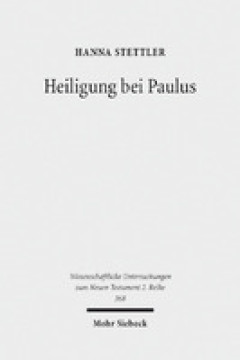
Heiligung bei Paulus :ein Beitrag aus biblisch-theologischer Sicht
Da die älteren Monographien zum Thema, die vor über vierzig Jahren erschienene Arbeit von Kurt Stalder und die unveröffentlichte Dissertation von Olav Hanssen, keinen Forschungsbericht enthalten1 und auch die neueren Beiträge zum Thema (mit Ausnahme von E. D. Schmidt)2 die Forschungsgeschichte nicht darstellen, sei diese hier in der gebotenen Kürze skizziert. Dabei ist eine thematis…
- Edition
- -
- ISBN/ISSN
- 9783161527586
- Collation
- xx, 755p : ill
- Series Title
- -
- Call Number
- 234.8092 STE h

Healthcare ethics for healthcare practitioners
Healthcare ethics cannot be limited in scope to apply only to the patient but needs to apply to the healthcare practitioner as well. The relationship between the patient and the healthcare practitioner has shifted from a power relationship to a complementary relationship. Leadership, mentorship and coaching play important roles in facilitating this shift. Several themes informed this book on he…
- Edition
- -
- ISBN/ISSN
- 9781920382995
- Collation
- 150p.
- Series Title
- -
- Call Number
- 362.1068 HEA h

Ardea :a philosophical novella
What is soul? Can it be forfeited? Can it be traded away? If it can, what would ensue? What consequences would follow from loss of soul — for the individual, for society, for the earth? In the early nineteenth century, Goethe’s hero, Faust, became a defining archetype of modernity, a harbinger of the existential possibilities and moral complexities of the modern condition. But today the dir…
- Edition
- -
- ISBN/ISSN
- 9780615845562
- Collation
- x ; 70p. : ill.
- Series Title
- -
- Call Number
- 170 FRE a
 Computer Science, Information & General Works
Computer Science, Information & General Works  Philosophy & Psychology
Philosophy & Psychology  Religion
Religion  Social Sciences
Social Sciences  Language
Language  Pure Science
Pure Science  Applied Sciences
Applied Sciences  Art & Recreation
Art & Recreation  Literature
Literature  History & Geography
History & Geography